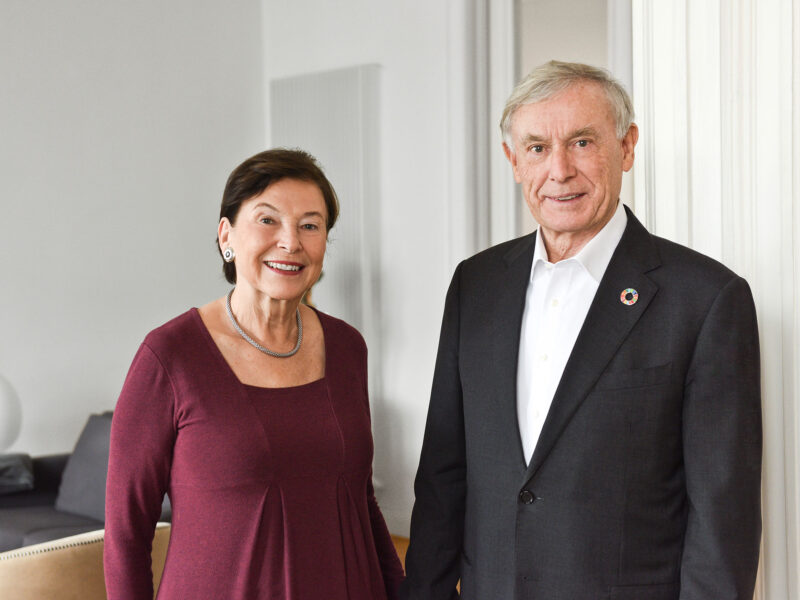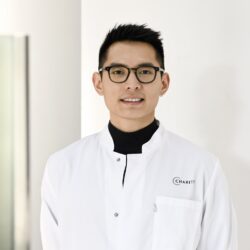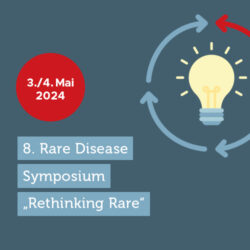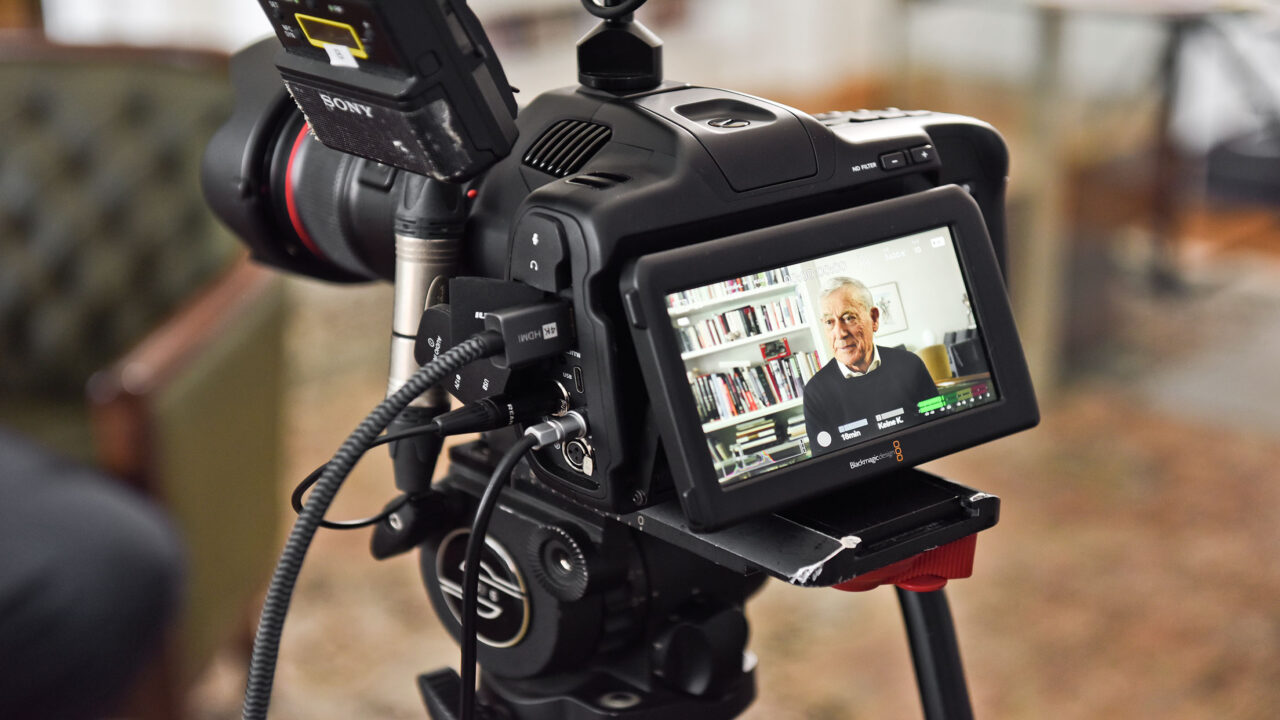
Sie sehen gerade einen Platzhalterinhalt von Youtube. Um auf den eigentlichen Inhalt zuzugreifen, klicken Sie auf die Schaltfläche unten. Bitte beachten Sie, dass dabei Daten an Drittanbieter weitergegeben werden.
Mehr Informationen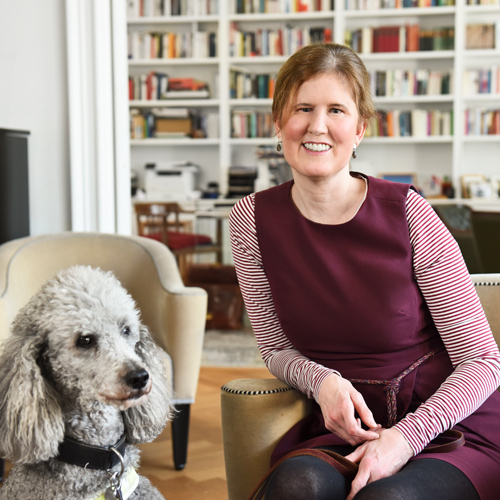
Ulrike Köhler
Deshalb beschließt die Familie bereits zu Beginn der ersten Amtszeit Horst Köhlers als Bundespräsident, selbst für eine bessere gesundheitliche Versorgung von Menschen mit Seltenen Erkrankungen aktiv zu werden. Auch wenn die einzelne Erkrankung selten ist, gibt es allein in Deutschland insgesamt mindestens vier Millionen betroffene Kinder, Jugendliche und Erwachsene, erläutert Ulrike Köhler. Mit diesen Menschen die Verbindung zu halten, ihnen eine Stimme zu sein, sei ihrer Mutter besonders wichtig: „Und ich finde, dass sie dabei fast wie ein Leuchtturm wirkt“, so die Tochter, die sich selbst im Beirat der Stiftung engagiert.
„Hoffnung zu schaffen, das hat sich meine Frau vorgenommen und dafür bewundere ich sie“, bekennt auch Bundespräsident a.D. Horst Köhler, der überzeugt ist: „Das Recht auf Gesundheit muss in einer humanen, guten Gesellschaft jeder haben. Man kann mehr machen, um das Los von Menschen mit Seltenen Erkrankungen zu verbessern.“ Im gesamten Gesundheitssystem gebe es zu wenig Kommunikation, Abstimmung und Wissen über seltene Krankheiten – nicht nur über die medizinischen, sondern auch die sozialen Probleme. „Es ist eine Frage der Gerechtigkeit, dem mehr Aufmerksamkeit zu widmen“, betont Horst Köhler.
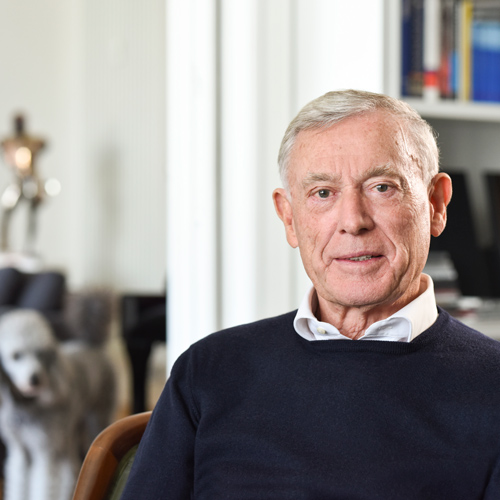
Horst Köhler
Und eine Frage der Weitsicht: Denn immer wieder kommt es vor, dass Forschung für seltene Krankheiten zu Therapien für wesentlich häufigere Leiden führt, erläutert Eva Luise Köhler. So haben amerikanische Wissenschaftlerinnen mit Blick auf eine Knochenkrankheit, die bisher nur bei etwa 100 Menschen weltweit diagnostiziert wurde, ein sehr effizientes Medikament gegen Osteoporose entwickelt, die wiederum die Lebensqualität jeder vierten Frau über 50 einschränkt. So betrachtet sei die Beschäftigung mit seltenen Krankheiten mehr als eine moralische Pflicht: „Sie ist ein wichtiger Schlüssel zum Verständnis unseres Körpers und der komplexen Abläufe, die ihn gesund erhalten.“
Fachleute schätzen, dass bislang etwa 8000 Seltene Erkrankungen entdeckt wurden, stetig kommen neue hinzu. „Die überwiegende Mehrzahl dieser Krankheiten ist genetisch bedingt, viele der Patienten sind Kinder“, erklärt Eva Luise Köhler. „Und jetzt stellen Sie sich mal die Eltern vor, die bangen, die nicht wissen: Was hat mein Kind? Die dann erfahren, dass es mit einer Krankheit kämpft, die nicht erforscht ist, für die es kein Medikament gibt.“ Diesen Menschen laufe die Zeit davon, deshalb sei es wichtig, in diesen Bereichen intensiver zu forschen, mahnt Eva Luise Köhler.
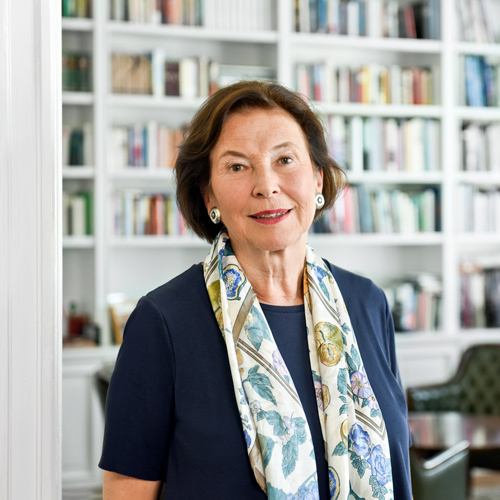
Eva Luise Köhler
Forschung ist der Schlüssel zu einer gesünderen Zukunft – das gilt auch und gerade für Menschen mit Seltenen Erkrankungen. Deshalb setzt die Stiftung gemeinsam mit vielen Freunden und Förderern genau hier an, wie Eva Luise Köhler betont: „Diese Hoffnung geben, das kann man als kleine Stiftung nicht alleine, da braucht man ganz viele Mitstreiter, letztlich das Engagement der gesamten Gesellschaft.“
